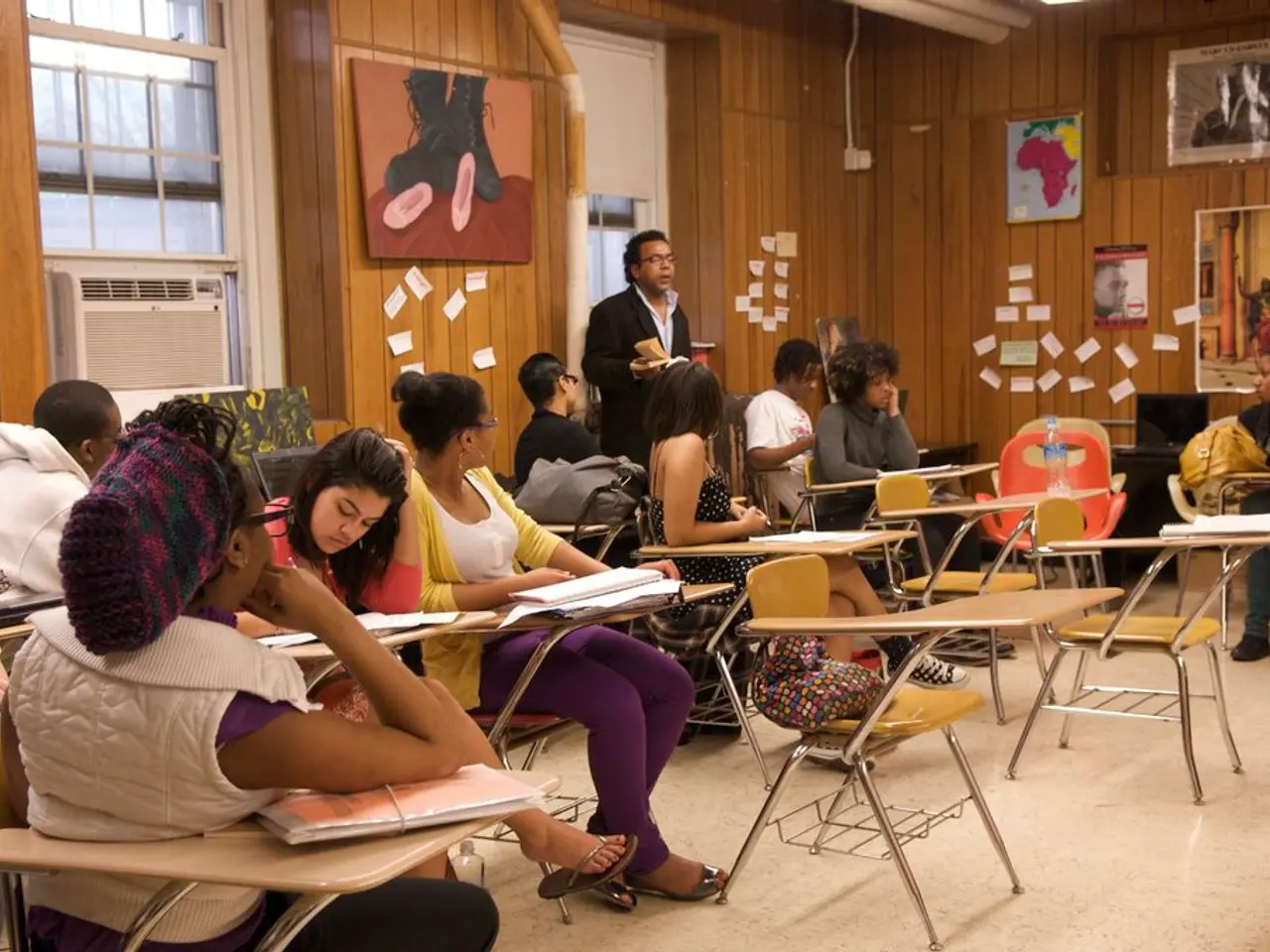Almost Ninety Percent of College Students Employ AI: Higher Education Requires Proficiency in AI Immediately
In the rapidly evolving world of education, Artificial Intelligence (AI) is no longer a novelty but a fundamental tool for students of all ages. This shift is being embraced by universities across the globe, as they integrate AI into various aspects of their curricula.
At the Massachusetts Institute of Technology (MIT), the Responsible AI for Social Empowerment & Education (RAISE) initiative fosters cross-campus dialogue to ensure that AI integration is deliberate and inclusive, rather than left to chance or individual departments. MIT's Vice Provost, Dimitris Bertsimas, emphasises the essential nature of AI, stating that every student and worker must understand it.
The Ruhr-University Bochum in Germany has taken a pioneering role in integrating AI into education. Projects like KI:edu.nrw and Learning AID 2025 develop strategies, provide platforms for exchange, and promote competencies for both teachers and students to handle AI technologies responsibly and effectively. The Ohio State University has launched an initiative to incorporate AI into all study programs, ensuring graduates are proficient not only in their major but also in AI.
AI fluency is now central to the student experience. A survey by Copyleaks found that 90% of U.S. students across various educational levels have used AI academically, with 74% reporting an increase in usage over the past year. The largest share of AI users in the survey were adult learners aged 45-60, followed by those aged 30-44, and then 18-29.
Universities that ignore AI risk reputational harm as well as workforce misalignment. To address this, institutions are establishing common entry points for AI literacy, such as first-year seminars or one-credit courses open to all majors. For example, the University of Texas at Austin offers a cross-disciplinary course, The Essentials of AI for Life and Society, to introduce students to AI's potential and risks.
Ohio State University has launched an AI Fluency initiative to invest heavily in faculty development. Colleges that continue to treat AI as a fringe issue risk irrelevance, as students have integrated AI deeply into their academic lives. Arizona State University has partnered directly with AI platforms to ensure universal student and faculty access, positioning equity as a strategic priority.
Teaching AI fluency is not optional; it is the next great literacy. A SHRM survey found that 83% of professionals believe that AI is foundational to workforce preparedness, given the $1.1 trillion annual skills gap. A global study by the Digital Education Council found that 86% of students across 16 countries already incorporate AI into their studies, with more than half using it weekly.
As AI continues to transform the workforce and society, universities are recognising the importance of equipping students with the skills to navigate this new landscape. MIT Open Learning's Universal AI, launching in early 2026, is designed to build AI fluency for all while using AI to personalise the learner experience. The Harvard Undergraduate Generative AI Survey revealed that nearly nine in ten Harvard students had already used AI in their coursework.
AI is not just a tool for Gen Z students; it's also becoming a core tool for mid-career and lifelong learners returning to higher education. Universities need cross-functional structures to create clear policies, such as acceptable uses of AI, vetting processes for new tools, and consistent workflows for updating guidance as technologies evolve.
In conclusion, the integration of AI into higher education is a global trend that is reshaping the way students learn and prepare for the future. Universities that embrace this transformation and prioritise AI fluency will position their graduates to thrive in a society and workforce already transformed by AI.
Read also:
- Setting Up and Expanding Operations at a Soil Blending Facility
- Surveying the Scene: Legality, Drones, and American Anti-Terror Strategy
- Regional University's healthcare system strengthened through collaborative partnership with Chancellor Dr Fiona Hill
- Top French Animation Studio: Comprehensive Guide for Your Selection








